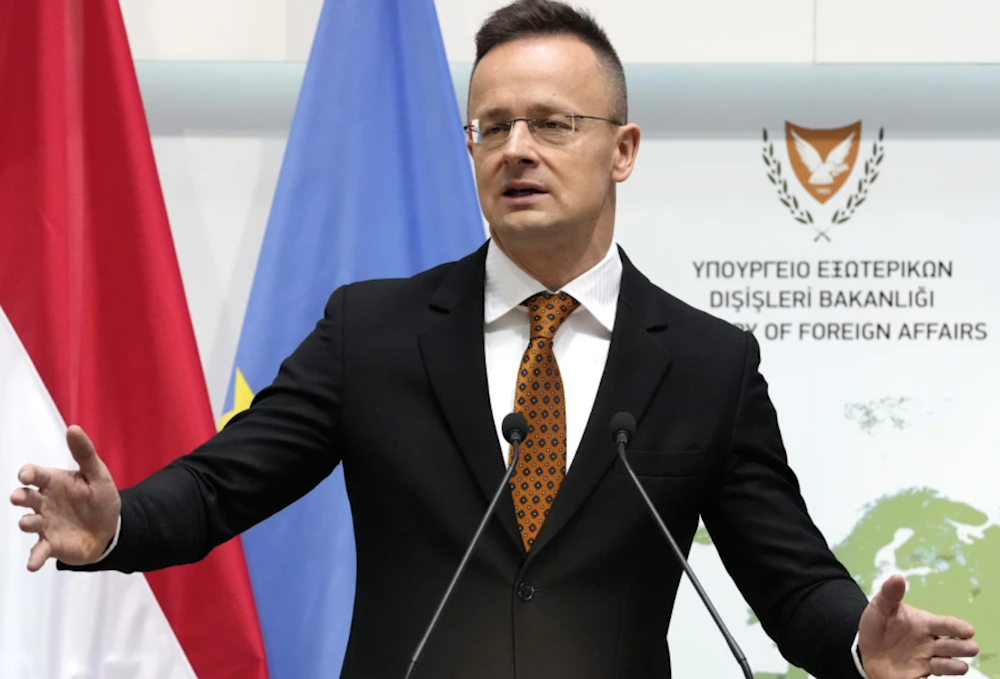Hungarian FM slams duties on Russian energy exports as 'outrageous'
Peter Szijjarto explains that the proposal was unacceptable for the country due to "national sovereignty and rationality."
-

Hungarian foreign minister Peter Szijjarto talks to the media during a press conference in Nicosia, Cyprus on April 2, 2024. (AP)
Hungarian Foreign Minister Peter Szijjarto announced Wednesday that Hungary firmly opposes any energy-related limitations and considers the European Union's proposal to put levies on Russian energy exports "outrageous".
Szijjarto detailed during an energy forum in Baku that Hungary rejected sanctions by "looking at the electricity prices," citing that there were attempts to "impose 'protective duties' on some energy resources in Europe now, which will increase the cost of ensuring the energy security of individual countries" something he believes is "completely unacceptable."
According to Szijjarto, the Hungarian government views energy purchases as "a matter of national sovereignty and rationality" rather than a political choice.
The top Hungarian diplomat also stated that any restrictions on "smooth, fair, and free" international energy cooperation should be abolished.
Hungary has persistently opposed Russian energy restrictions and has frequently urged the EU and NATO to keep communication channels open with Russia.
The country has consistently criticized the West's response to the war in Ukraine, notably its weaponry transfers to Kiev and deployment of troops. Officials in Budapest have frequently urged for a ceasefire, claiming that EU sanctions against Russia have failed to harm the country's economy and have instead backfired against the EU.
Hungary delayed the EU's €50 billion ($54 billion) aid package to Ukraine for several weeks at the end of last year before backing down under Western pressure.
Potential ban on Russian LNG can cost EU 19% of its imports: Report
Based on data from Eurostat, Sputnik estimated on April 22 that a ban on Russian liquified natural gas (LNG) from the European Union will cost it a 19% share of its imports as Russia is the second largest supplier of LNG to the bloc.
EU member states intend to include a ban on LNG imports from Russia in the 14th package of sanctions against it, Swedish Foreign Minister Tobias Billstrom told reporters earlier today.
The EU imported LNG equivalent to a total of 7 billion euros ($7.46 billion) in January-February from nine different countries.

 2 Min Read
2 Min Read









